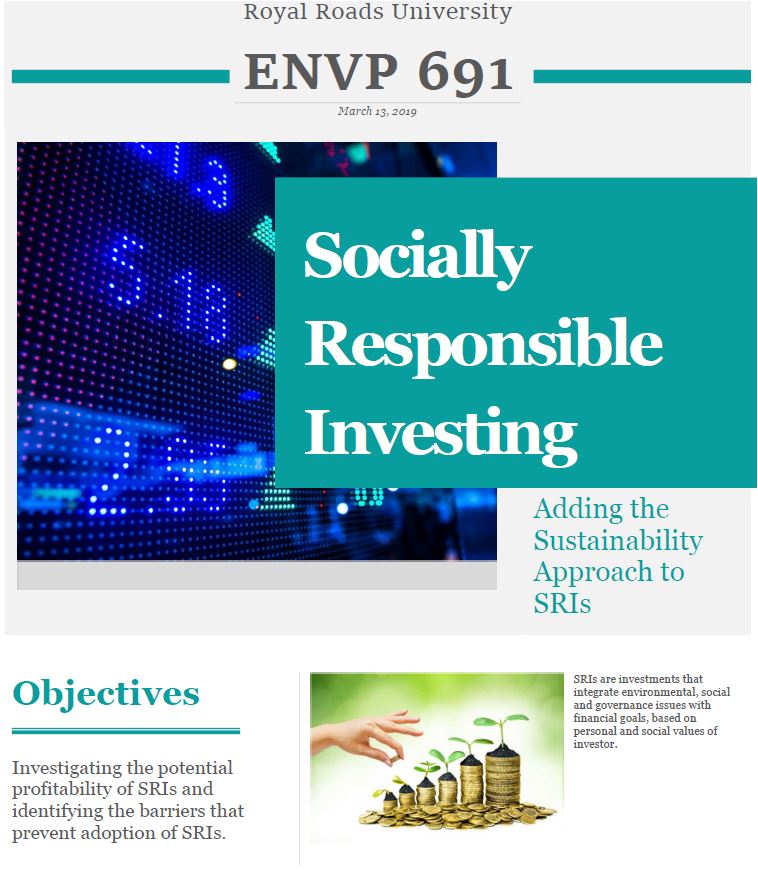|
The majority of us, if not all, own some sort of investment. Mutual funds, Exchange-traded funds (ETFs), publicly traded stocks, pension funds...what do all these have in common? The option to choose sustainably in a responsible manner. This week is Responsible Investment Week in Canada with a focus to educate and gain awareness about all things related to responsible investing. In recognition of this, we feel it is important to start a discussion about responsible investing.
Earlier this year, our Managing Director, Connie Lum prepared a research paper and virtual presentation (click to view) titled "Adding the Sustainability Approach to Socially Responsible Investing (SRI)" to complete her Master's degree in Environmental Practice. The paper addresses the following topics: - the barriers preventing the shift towards SRI - financial performance of SRIs versus conventional investments - ESG strategies - recommended tools and strategies for shifting towards responsible investing. Socially responsible investing has grown significantly and matured into the mainstream of investing, however, there are still mixed reviews related to the financial performance of socially responsible investments compared to conventional funds. The objectives of the research paper is to investigate the potential profitability of SRI and to identify the barriers that may be preventing widespread adoption of SRI. The paper also addresses the question of whether an investor can do well (financially), while doing good (ESG). A synthesis of literature indicates that common barriers towards SRI include short-termism, lack of corporate disclosure and transparency, lack of standardization, and diminished sense of ownership. Sustainability approaches are identified to improve financial goals of SRIs and to shift towards SRIs with more focus on institutional investors than individual investors. The approaches include tools and strategies such as adaptive co-management, education and awareness, engagement, active ownership, enabling organizations and adaptive governance, and ESG integration. All of these tools and strategies complement each other, in one way or another through learning and collaboration. Studies show that SRIs perform just as well as conventional funds. Furthermore, financial performance of SRIs can be improved when sustainability is considered. Businesses that factors sustainability into their strategies are expected to perform better financially. Feel free to contact us for access to the full research paper.
0 Comments
|
|
Services |
Company |
SupportENVIROLUM CONSULTING INC. © 2024. ALL RIGHTS RESERVED.
|


 RSS Feed
RSS Feed